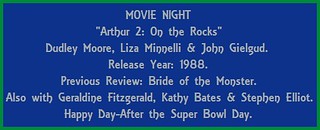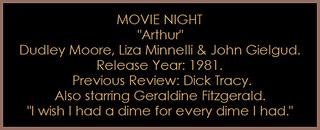Cast:
Billy Dee Williams (Bingo Long [P]), James Earl Jones (Leon Carter, All-Star [C]), Richard Pryor (Charlie Snow, All-Star [RF] / "Carlos Nevada" / "Chief Takahoma"), Stan Shaw ("Esquire Joe" Calloway, An All-Star [CF]), Tony Burton (Issac, All-Star [CF]), Rico Dawson (Willie Lee Shively, All-Star [RF]), Sam "Birmingham" Brison (Louis Keystone, All-Star [SS]), Jophery Brown (Emory "Champ" Chambers, All-Star [3B]), Leon Wagner (Sam "Fat Sam" Popper, All-Star [1B]), John McCurry (Walter Murchman, All-Star [LF]), DeWayne Jessie (Rainbow, All-Star [Batboy]), Ted Ross (Sallison Potter [Owner]), Mabel King (Bertha Dewitt [Owner]), Ken Foree (Honey), and Carl Gordon (Mack) Directed by John Badham (#088 - Short Circuit, #1293 - Dracula (1979), #1456 - Saturday Night Fever, #1610 - WarGames)
Review:
If you didn't already know about the Negro leagues when it comes to baseball, you really should. Oh sure, I will get to the review of the film soon, but I figured that this matched perfectly with this particular month in black history. Baseball, as we all know, is a great game. However, it was not a perfect game when it came to handling color, as the line between white and black players arose in the late 19th century that excluded the latter from league play. In 1887, the first black league was created, but independent play was the norm until the 20th century. In 1920, the Negro National League was formed by the legendary pitcher/manager Rube Foster, and it became the first definitive major league for black baseball. Six other leagues would come and go in the next two decades that featured many great players and managers all across the country, such as Satchel Paige, Josh Gibson, Willie Wells, Turkey Stearnes, Candy Jim Taylor, Vic Harris, and plenty more. Integration of Major League Baseball occurred in 1947 with Jackie Robinson and Larry Doby, which turned the Negro leagues into a barnstorming unit (most notably with the Indianapolis Clowns); Robinson would be the first black player to become a member of the Baseball Hall of Fame in 1962, but it was only nine years later that a committee was formed to induct players that were involved in the Negro leagues, starting with Paige. Although numerous great players have been honored from this era, it was only in 2021 that MLB made a decision to recognize those seven leagues as major leagues. To tie all this together with how Negro league baseball inspired folks, consider the fact that John Badham grew up in Birmingham, Alabama, where the Black Barons played in the era. Badham (in his directorial debut) seemed like the ideal director to adapt the 1973 novel of the same name that was written by William Brashler. Hal Barwood and Matthew Robbins did the screenplay for the film, while Berry Gordy (known for his work in Motown Records) served as one of the producers.
Honestly, there are ingredients for a great piece of entertainment, one that could have really been a tremendous period comedy that took inspiration from the famous names that starred in the Negro leagues. Some of this is present here when it comes to antics reminiscent of players such as Paige (who liked to call in the outfield in an inning to strike out the side on occasion) and Gibson (a power-hitting catcher) with a little bit of Jackie Robinson (of course, the film is set in 1939, which makes the ending of the film curiously out-of-place). Of course, by the time one finishes its 110-minute runtime, they will find a film that is...more of a long single rather than a home run, shall we say. It might sound dissapointing, but one does want a bit more from a baseball movie than just one that plays for a few laughs. There is something begging to be told about the story of players who toil to make a few bucks while dealing with both the realities of that time in America, but one seems to see more antics than foundational points. The baseball action is also just okay, since a good deal of it is meant to be charming in the style of the Harlem Globetrotters than say, The Pride of the Yankees. Charming, sure, but one can see where perspective might have helped when it comes to seeing people struggle to make a living within segregated baseball.
At least one can say Williams and Jones are at their best here. Incidentally, Williams, who grew up in New York City, used to watch Negro league (and Cuban) players play in Central Park before he developed dreams of becoming a painter and actor. He proves engaging in a charming role filled with confidence that is quite infectious. Jones accompanies him with solid chemistry while essentially playing the straight man in a film with a handful of chuckles to go around, which works fine for him. Pryor is technically the third star of the film, even if he really only has four scenes to show for it, with two of them involving him impersonating a Cuban and Native American. He does fine schtick, I guess. Shaw does fine as the essential leader of the supporting cast (which includes a dwarf ballplayer), while Ross seems suited for more scenes to chew on as the heel (King is also interesting, but she is mainly used for a one-note joke). To me, the movie is most interesting when one sees the baseball diamond and the history it invites more than a few sly jokes (the firecracker bit being the best), but it generally manages to be charming enough to make the final result worth it. With a suitable cast and a fair foundation behind it, I would say this makes for a decent baseball movie and decent one to pick out for encouraging further research in black history.
Overall, I give it 7 out of 10 stars.
Next Time: Friday.



